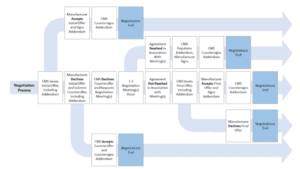COVID-19 Business Interruption Claim under Environmental Policy Survives
The court determined there was coverage for business interruption due to COVID-19 under an Environmental policy. Sunstone Hotel Investors, Inc. v. Endurance American Spec. Ins. Co., 2022 U.S. Dist. LEXIS 11147 (C.D. Cal. June 15, 2022).
Sunstone was a real estate investment trust that had an interest in 20 hotel properties with 10,000 guest rooms across the United States. In 2017, Sunstone purchased a “Site Environmental Impairment Liability Coverage” policy from Endurance. The policy provided $25,000,000 of coverage for business interruption losses caused by a biological agent. Coverage D provided that Endurance would pay “the Insureds’ Business Interruption Losses and Extra Expenses during the Interruption Period that directly results from . . . Biological Agent Conditions . . .” There was no dispute that COVID-19 was a Biological Agent, but the parties disagreed on coverage provided under Coverage D.
From February 24 to 27, 2020, one of Sunstone’s hotels in Boston hosted the Biogen Conference. On March 5, 2020, Sunstone was informed by the Boston Public Health Department (BPHD) that three attendees of the conference tested positive for COVID-19. The next day, Sunstone gave notice to Endurance. Between March 6, 2020 and March 14, 2020, portions of the hotel were cleaned. On March 11, 2020, BPHD informed the hotel that it must be closed. The hotel agreed to suspend its operations for 14 days.
Before the hotel could reopen, on March 23, 2020, the State of Massachusetts issued an order requiring the closure of all non-essential businesses in the state. The hotel remained closed until July 7, 2020, at which point it reopened in a limited capacity.
Sunstone filed a claim with Endurance on March 5, 2020. Endurance denied the claim. Sunstone filed suit and cross-motions for summary judgment were filed.
Coverage D provided that Endurance would pay for Business Interruption Losses during the Interruption Period that “directly result from . . . Biological Agent Conditions. . .” Endurance argued that any Business Interruption Losses that may have been sustained after March 23, 2020 were due to the Massachusetts Order, not a Biological Agent Condition.
Endurance relied upon cases discussing “damage to property” policies. But the policy here did not require physical damage or physical loss of use. Instead, the coverage was designed to address viruses and other biological agents that interrupted the hotel’s operations.
The Massachusetts Order may not have been issued solely to stop the spread of the virus disseminating from the hotel, but it was issued to prevent future super-spreader events like the Biogen conference which took place at the hotel. The Order was designed, at least in part, to prevent the virus’s spread because of the hotel’s operations.
Next, Endurance argued the the Interruption Period ended as soon as the Massachusetts Order took effect on March 24, 2020. Sunstone countered that the Interruption Period lasted until March 2021, or for one year – the maximum duration of the Interruption Period under the Policy. Due to an ambiguity in the policy and Sunstone’s objectively reasonable expectations, the court concluded that as long as the virus was a source of the hotel’s Business Interruption Losses, the Interruption Period continued, ending no later than March 2021.
Finally, Endurance raised an exclusion under Coverage D providing that “the Interruption Period will be deemed to have ended even if operations cannot resume . . . for regulatory reasons.” Endurance argued that the Massachusetts Order was regulatory and even if the hotel was initially closed to address the presence of the virus, the hotel’s operations remained suspended after March 26, 2020 solely because of the Massachusetts Order. Endurance had not shown, however, that the Massachusetts Order was the actual reason there was interruption to the hotel’s operations. There was no question that the virus itself interrupted the hotel’s operations because even if the State had allowed the hotel to operate at full capacity, the hotel could not have done so.
Therefore, Endurance’s motion for summary judgment was denied. Sunstone’s motion with respect to how to interpret the provision governing the ending of the Interruption Period was granted. The court denied Sunstone’s motion that the court make the factual determination that the Interruption Period ended in March 2021. Further discovery was required to decide this issue.





